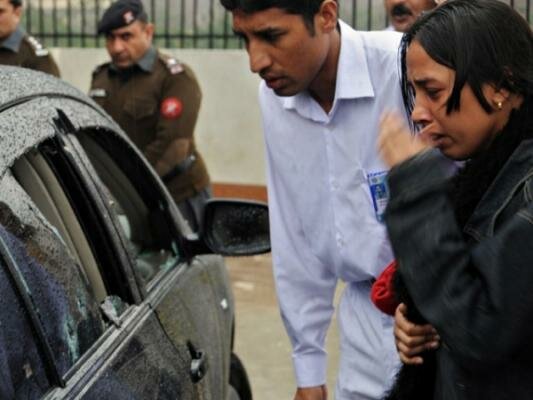Are the Extremists Taking over Pakistan?
He was the only Christian in the Cabinet, and the second to be killed for wanting to change Pakistan’s blasphemy law which imposes the death penalty on those deemed to have insulted Islam.

On 2 March, Pakistan’s Federal Minister for Minority Affairs was shot dead in Islamabad. Shahbaz Bhatti, the only Christian member of the Federal Cabinet, was on his way to work when, as the reports put it, “unknown gunmen riddled his car with bullets.”
Al Jazeera English noted that Bhatti’s driver was also wounded in the attack, and correspondent Kamaal Hyder reported, “They asked the driver to get out of the vehicle and then peppered the minister with bullets…He was on his way to a cabinet meeting.”
Express reports that the Tehreek-e-Taliban had claimed responsibility for the attack, which reportedly took place outside Bhatti’s parent’s house. In leaflets left at the scene of the shooting, the militants “blamed the government for putting Bhatti, an ‘infidel Christian,’ in charge of an unspecified committee, apparently referring to one said to be reviewing the blasphemy law,” noted the Associated Press. The pamphlet emphasized, “With the blessing of Allah, the mujahedeen will send each of you to hell.”
Liberal Punjab governor Salmaan Taseer was also keen to see the blasphemy law changed. He was assassinated in January by his bodyguard. After Taseer’s death, Bhatti voiced fears that he was “the next highest target,” given his statements against Pakistan’s blasphemy laws.
Bhatti reportedly requested more security, and was provided with four guards by the interior ministry but the security detail was not with him at the time of the attack. Islamabad’s Inspector General said this was not a security lapse because, he told reporters, “The squad officer told me that the minister had directed him to wait for him at his office. He used to often visit his mother’s house without a squad…We are investigating the matter from different angles.”
If this is indeed the case, then Bhatti’s assassins were well aware of when the minister wasn’t accompanied by his security detail. That is a potential concern.
Bhatti’s death is an immense tragedy, another nail in the coffin for those willing to be truly courageous in this country. Both Taseer and Bhatti may have spoken out openly against the blasphemy laws, but just as this legislation has become a larger-than-life symbol, so has this type of bravery. After Bhatti’s assassination, Pakistani politicians issued the expected condemnations, but not one person even mentioned the laws.
In fact, voices against the blasphemy laws have dwindled considerably. Political analyst Rasul Bakhsh Rais told the AP that Bhatti’s death “further weakens a government already seen by many as corrupt and ineffective.” He emphasized, “They’re not interested in providing citizens with what they need. We don’t have good economy, good society, good education or good security.”
Bhatti was well aware of the danger he was in, and taped a farewell message to be broadcast in the event of his death. Despite the threats he received, he said in the tape, he would not be deterred from speaking for “oppressed and marginalized persecuted Christians and other minorities” in Pakistan. “I will die to defend their rights. These threats and these warnings cannot change my opinions and principles.”
Bhatti’s farewell tape/interview:
This post was originally published in Changing Up Pakistan in March 2011.


















Post new comment